Your Cart is Empty
Free shipping over 12.99 丨 30-Day Money-Back Guarantee 丨shipping: 2-3Days
Free shipping over 12.99 丨 30-Day Money-Back Guarantee 丨shipping: 2-3Days
Have you ever turned on a light, used a smartphone, taken your blood pressure or driven somewhere using GPS navigation? If so, you can thank an electrical engineer for creating and designing these modern conveniences. Electrical engineers are skilled professionals who work in fields related to electricity, electromagnetism and electronics. They develop the technology that people rely on every day.
On a larger scale, electrical engineers work with teams to create microprocessors to place in computers, design new satellites to expand global telecommunications; or develop new flight control systems to help pilots fly planes more efficiently. No one industry employs all electrical engineers.
The U.S. Bureau of Labor Statistics (BLS) shows that the largest employers of electrical engineers are spread across multiple industries, including engineering services (21 percent), power generation, transmission and distribution (10 percent), and marine, surveying, electro-medical and control instrumentation manufacturing (7 percent) as the top three employers ( BLS 2021). In these areas, electrical engineers design solutions to enhance industries such as renewable energy or solve specific problems in microelectronics, such as making online banking easier and more efficient.
Many electrical engineers are engaged in research to push the limits of technology in electrical motors, radar, power generation and communications systems.
Throughout history, electrical engineers have played an important role in developing the devices and technologies that humans rely on every day. Notable electrical engineers include Thomas Edison, who shaped history by creating such achievements as the first practical light bulb, and David Packard, who co-founded Hewlett-Packard, a company that provides hardware and software-related services worldwide. Serbian-American engineer Nikola Tesla helped develop the modern AC power supply system.
Before beginning a career in electrical engineering, individuals should be well prepared for what to expect along the way. This is a reference guide for learning how to become an electrical engineer and eventually participate in expanding the everyday technologies that provide convenience and save lives.
No two successful electrical engineers are exactly alike. It is impossible to define what character attributes an individual must possess to be successful in this field. That said, specific skills and competencies may be beneficial to anyone working as an electrical engineer in the future.O*NET OnLine and the BLS list these skills as the most distinctive for electrical engineers.
In addition to developing specific skills, aspiring electrical engineers should take high school courses that prepare them for further education in the field. Specifically, students should excel in physics and other sciences, all levels of mathematics, computing and computer programming. It may also be very helpful to take a course in electrical and electronic components (if available) or to take this course at a community college.
To pursue a career as an electrical engineer, an individual must first meet several criteria. Perhaps most importantly, aspiring electrical engineers must complete a bachelor's degree from a four-year college or university, specifically in the field of electrical engineering (some exceptions are listed below).
While it is not entirely necessary to earn a four-year bachelor's degree from an Accreditation Board Accredited Engineering and Technology (ABET) program (a subgroup of the Institute of Electrical and Electronics Engineers (IEEE)), doing so will help an engineer's future employment prospects.
Earning a four-year degree from an ABET-accredited institution is one of the prerequisites for obtaining a professional engineer (PE) license, which allows the holder to perform a more comprehensive range of work, often involving a greater scope of responsibilities.
It is important to note that in some cases, a person may find work as an electrical engineer even if he or she has not earned a bachelor's degree in that particular field. For example, an individual who has a degree in civil or mechanical engineering and has taken courses in electrical engineering, and demonstrated exceptional skills in the field may be able to find work as an electrical engineer.
In addition, some students may earn a bachelor's degree in an entirely different field and then earn a master's degree in electrical engineering; these individuals are qualified to find jobs in that field.
After earning a degree in electrical engineering, graduates can begin working immediately. After four years, engineers are eligible for licensure as professional engineers through the National Society of Professional Engineers (NSPE). Becoming a Professional Engineer (PE) allows the holder to pursue a broader range of occupations that require greater responsibility.
Before receiving this license, individuals must meet specific criteria. According to the NSPE, the steps to obtain a PE license are as follows:
Once an individual meets all four of these criteria, they will be eligible for licensure as a professional engineer through the NSPE.
Our Goal: To find the best electrical engineering books on the internet (not one person's opinion).
Our process:
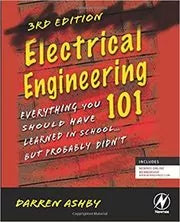
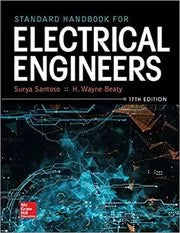

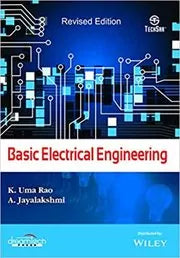

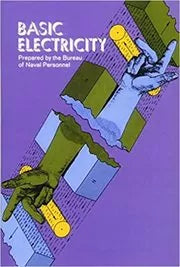


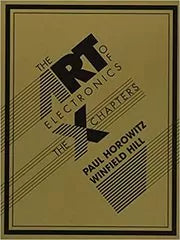

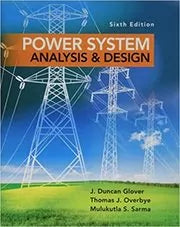

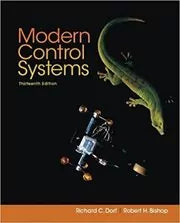
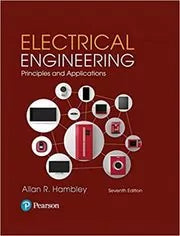
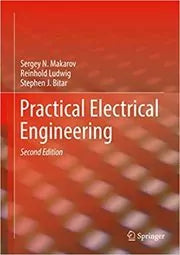
1.10 must-read books for electricians in 2021! Recommended by Master Electricians
2.Best Books For Electricians|Must-read books for those who want to become electricians
3.5 Best Home Electrical Wiring Books for Beginners | Electricians Guide
4.Top And Best Books And Guides For Electricians And Apprentices | Knoweasy Electrician Guide
5.The Best Electrician Books For Beginners: Top Six Sellers In 2022
1.Best Clamp Meters: Our Top 10 Meters for Electricians(Updated 2025)
2.The Best Non-Contact Voltage Tester: Certified by 20 Years of Electrician Experience
3. 7 best diagonal shears/side shears pliers! Higher precision and efficiency
4. Best Electrician's Knife: Top 7 in 2022 (Pocket, Tortoiseshell and Wire Stripping)
5.Top 11 Electrician's Tools Belts and Bags Worth Investing in 2023
6.The Top Heat Guns of 2023: Find the Best Tool for Your Next Project
7.The 10 Best Smart Gloves for Electricians丨Safety and Tech Savvy at the Same Time
8.Best chainsaw sharpeners of 2023:Keep your power tools sharp
9.Best Tin Snips Of 2023: Cutting Thin-Gauge Metals with Ease
10.Best 10 AWG Wire | Helps electricians choose the right battery
Author: Leb
Personal blog: https://lebshare.blogspot.com
Comments will be approved before showing up.